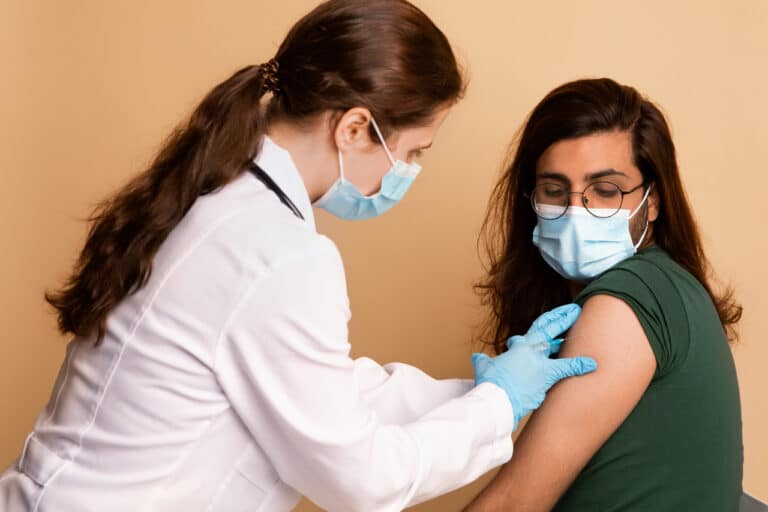The National Center for Biotechnology Information (NCBI) called postpartum hemorrhoids a neglected postpartum problem. In their research, over half of the mothers continued to experience the problem after one and a half years after giving birth and did not seek medical care.
It can feel embarrassing to talk openly about hemorrhoids. Yet, knowing that it is a common postpartum problem and that many different treatments are available make it less uncomfortable.
This guide will look into proper ways to deal with postpartum hemorrhoids.
In This Article
When to See a Gastroenterologist For Postpartum Hemorrhoids
For those women who have postpartum hemorrhoids that never went away, are constantly in pain and often feel uneasy, it is best to consult with an experienced doctor to discuss possible treatments. You may seek the help of a gastroenterologist, a trained doctor in internal medicine. They focus on treating disorders in the gut, bile ducts, pancreas, liver, and gallbladder. Your local gastroenterologist should be able to diagnose various causes of hemorrhoids and advise remedies, treatments, and medications.
If you have any of these symptoms, you shouldn’t ignore hemorrhoids any longer:
- Pain in the anus, even when sitting
- Burning sensation in the anus
- Rectal bleeding–blood in the stool, toilet bowl, or toilet paper after a bowel movement
- Difficulty washing the anal area
- Bulging or swelling hemorrhoid (more pronounced during and after bowel movements)
- Hard or tender lumps in the anus
- No relief from over the counter medicines

How are Postpartum Hemorrhoids Diagnosed
Your first visit to a gastroenterologist may include a rectal and anal examination. The doctor may also perform the following when examining the anus and rectum.
- Sigmoidoscopy- This procedure is done using a sigmoidoscope to gain an optical view of the sigmoid colon located in the lower intestine and see inside the rectum.
- Colonoscopy- The doctor will insert a colonoscope into the rectum and anus to see if there are abnormalities from the inside, along with the lining of the colon
If it is your first time to have these procedures done, your doctor will prescribe some steps that you should do to prepare you physically and mentally.
How Do You Know If You Need Hemorrhoid Surgery
When you have both internal and external types of hemorrhoids, you may need surgery. Also, the procedure may be necessary for those with big hemorrhoids or a thrombosed hemorrhoid. When there is blood clotting in the thrombosed hemorrhoid, it can cause extreme pain. Thus, this has to be removed by surgery for pain relief.
During your consultation, the doctor will identify the best and safest procedure, depending on the severity of your case. To give you an idea, here are hemorrhoid surgery types that your doctor could mention:
- Rubber band Ligation
The gastroenterologist will place a small elastic band right at the base of hemorrhoid to cause it to shrink. This process may take several weeks to remove hemorrhoids by cutting off their blood supply.
- Stapled Hemorrhoidopexy
This type of surgery will require general anesthesia. A stapling instrument will help hold the hemorrhoids back in place.
- Infrared Coagulation
This method targets to reduce the size of hemorrhoids through various heating methods.
- Hemorrhoidectomy
Hemorrhoidectomy is the type of surgery done to remove severe or large hemorrhoids. The process involves removing the blood vessels and blood clots. This invasive procedure will require general anesthesia as it can cause much pain. However, there is less likelihood for hemorrhoids to return after a hemorrhoidectomy.
- Sclerotherapy
A now-defunct treatment for hemorrhoids, this method claims to shrink the hemorrhoid tissues by injecting a chemical solution around or into the blood vessel.
Non-surgical Remedies For Hemorrhoids
According to research, hemorrhoids can take weeks, months, or even years to go away on their own. Factors that affect how long before hemorrhoids disappear include size, severity, and location.
If you cannot visit the gastroenterologist soon, here’s what you can do at home:
- Use over the counter (OTC) medication like hemorrhoid creams or ointments, sprays, and suppositories. These may provide short-term relief in more minor hemorrhoids.
- Witch hazel may also soothe hemorrhoids. You may use cotton balls when applying witch hazel. You may also purchase witch hazel pads for this purpose.
- To relieve pressure on the rectal area while sitting, prop up with a pillow or sit on a recliner.
- Consult your doctor about stool softeners. Your doctor will provide you with a prescription and direct you on its proper dosage.
- Drink more water to soften your stools.
- Increase your dietary fiber intake to prevent constipation. Constipation makes your hemorrhoids worse.
- Sitz baths (hip baths) help shrink hemorrhoids. Soak the rectal rea in a warm basin of water two to four times a day.
- Do more exercise like the chair pose-a a yoga position for postpartum. It may help with postpartum hemorrhoids healing.
- Ice packs can also bring down inflammation and offer pain relief for hemorrhoids.
- Avoid saccharine and high-fat foods that are constipation-causing, like cakes, ice cream, and cheese.
Takeaway
Hemorrhoids are one of the common conditions among women after giving birth. Many women develop hemorrhoids after a vaginal delivery. Hemorrhoid development is also associated with straining during delivery. It can also happen during pregnancy in some cases due to an increased likelihood of getting constipation.
Postpartum hemorrhoids may persist if left untreated. Thus, it is advisable to consult your doctor immediately, try out home remedies and non-invasive and invasive surgical treatments to save yourself from the pain and inconvenience of this disease.











